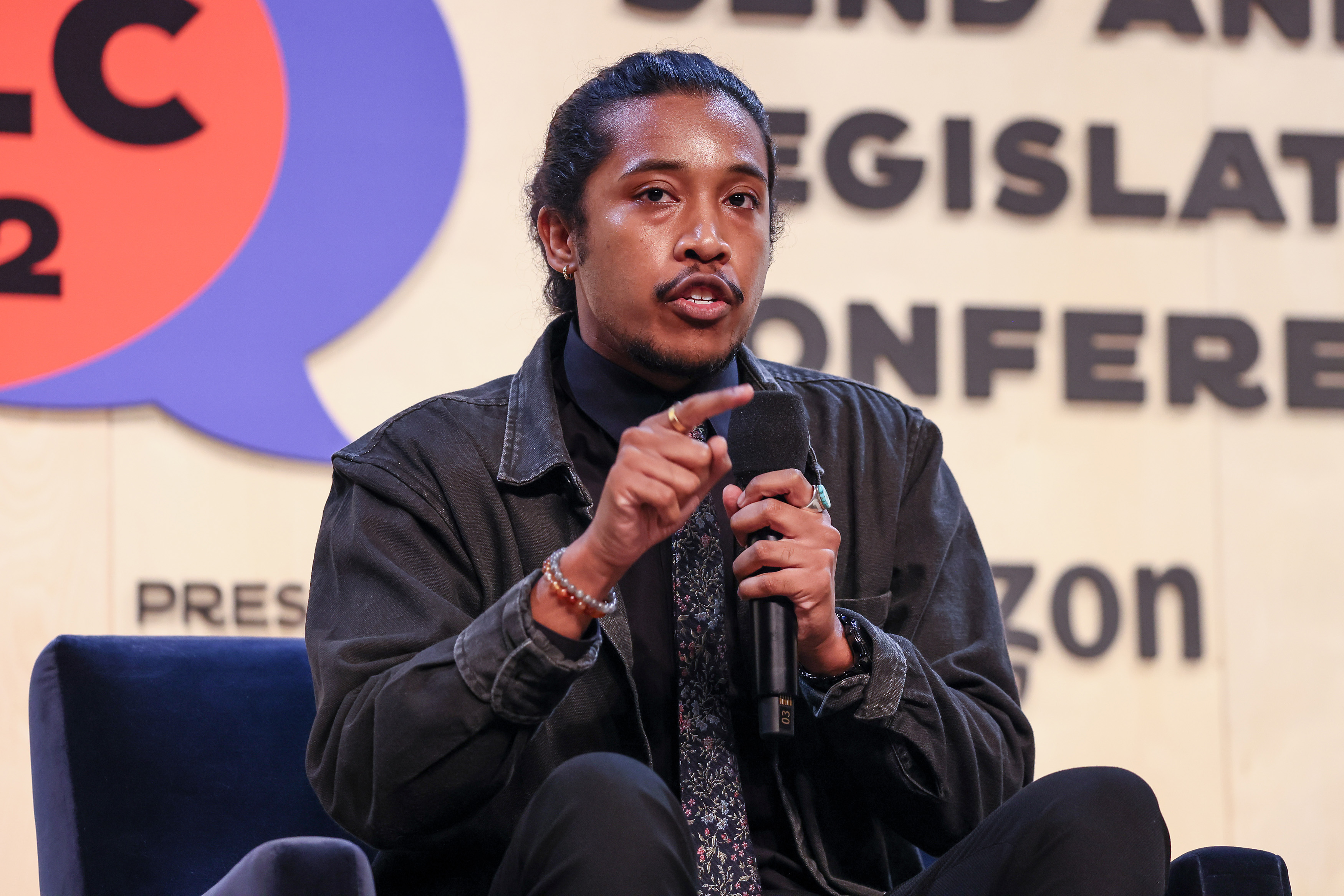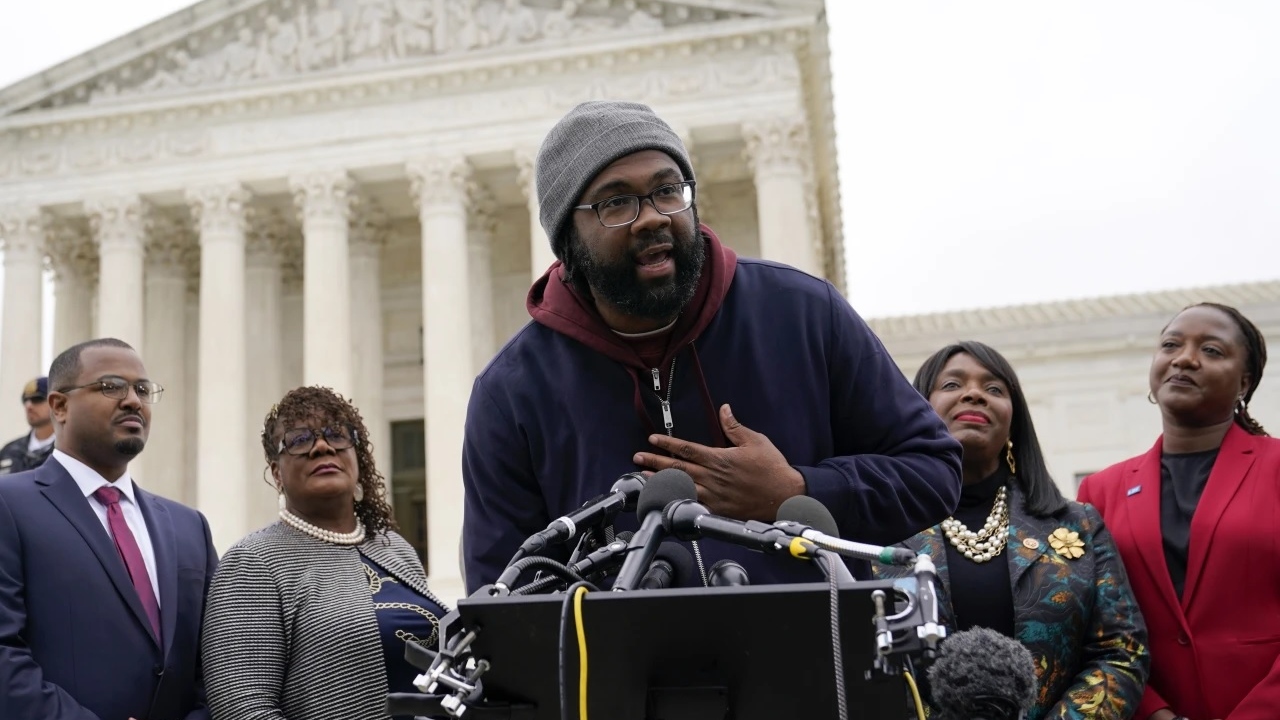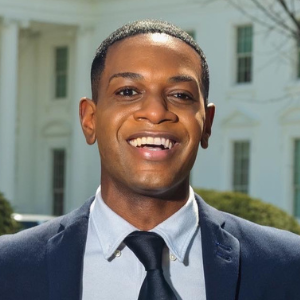Nikole Hannah Jones’ ‘Democracy Summit’ rings the alarm about rising threats
“A culture of balance and covering both sides has impeded our ability to accurately convey to the public what’s actually […] The post Nikole Hannah Jones’ ‘Democracy Summit’ rings the alarm about rising threats appeared first on TheGrio.

“A culture of balance and covering both sides has impeded our ability to accurately convey to the public what’s actually happening,” says the founder of Howard University’s Center for Journalism & Democracy.
Pulitzer Prize-winning journalist and author Nikole Hannah Jones convened political journalists, elected officials, students and educators at Howard University earlier this week to discuss the rising threats against democracy.
At the second annual Democracy Summit, hosted by Howard’s Center for Journalism & Democracy, the biggest names in media moderated various panels of experts on critical barriers to a free and functioning democracy, including racial gerrymandering and censorship in state legislatures and schools.
Jones, the center’s founder and the Knight chair in race and journalism at Howard, delivered a sobering call to action at the summit and challenged journalists to reject neutrality when reporting about Republicans and the state of politics.

One political party comprised of mostly white, straight men, she argued, is rolling back democratic norms and circumventing power from a collective majority of Americans, including Black, brown and LGBTQ+ communities, as well as women and young people.
“A culture of balance and covering both sides has impeded our ability to accurately convey to the public what’s actually happening,” said Jones, a domestic correspondent for The New York Times Magazine.
The creator of the 1619 Project continued, “Our mandate is to tell the truth as best we can discern and to hold power accountable and to always value truth over power.”
“There’s absolutely nothing partisan about reporting the truth, even if that truth is that one major political party is seeming to lose its commitment to democracy,” she added.
Since former President Donald Trump left office, Republicans across the country escalated rollbacks or censored certain freedoms, from voting access for marginalized and disadvantaged groups to the freedom of speech.
Dozens of states have enacted laws restricting how race and racism are taught in classrooms and banned discussions on LGBTQ+ identity.
Other freedoms like abortion access were also banned in several states after the conservative-majority Supreme Court overturned Roe v. Wade, despite an overwhelming majority of Americans supporting access to abortion care.
Some of the more glaring examples of anti-democratic actions from Republicans have been on the state level, particularly in Tennessee, where state GOP lawmakers infamously expelled two Black state lawmakers, Reps. Justin Jones and Justin J. Pearson.

Other examples have been in Florida, where Gov. Ron DeSantis removed duly-elected state attorneys whom he politically disagreed with.
Jones, who was reinstated and later re-elected to his state House seat, joined the summit’s “Anti-Democracy in State Houses” panel. He called the move by the “majority-white Republican supermajority” as “very unprecedented.”
“What they’re trying to expel is not us as individuals but trying to expel our movement,” Jones said. “The movement led by young people in the South to build a new South: a multi-racial South, a multi-generational South that talks about racial justice and economic justice.”
Members of the press are experiencing similar bans. Nehemiah Frank, founder and editor-in-chief of the Black Wall Street Times, who also spoke on the panel, shared that his newsroom was banned from attending the press conferences of Oklahoma Gov. Kevin Stitt due to their critical coverage of his administration.
Though the publication based in Tulsa was later reinstated, it was also banned from attending conferences held by “pro-Trump Republican” State Superintendent Ryan Walters, as well as receiving communications from his office.
The news outlet had been critical of Walters, who argued that race should not be taught in classrooms when teaching students about the Tulsa Race Massacre of 1921.
“It is a wake-up call … we are running out of time,” said Frank, who called for journalists to be “journalistic activists” in this political climate.
Similarly, Jones said, “We as movement lawmakers, we as movement journalists must disrupt the systems of plantation politics [and] of white supremacy.”
He said the attempts to censor and silence Democratic lawmakers and circumvent power from the voting public is a “warning from the South” and a “practice drill” in which Republicans are testing out how far they can go.
Keesha Middlemas, associate professor of political science at Howard, said when it comes to comparisons between the Democratic and Republican parties, they are “no longer the same.”
“The GOP is no longer operating like a real political party,” Middlemas said. “This whole idea of silencing people through the vote, silencing people because they can’t actually participate in society, crosses so many different public policies.”
Republican-controlled state legislatures have run amok in the redrawing of congressional maps, leading to several federal lawsuits accusing them of violating the Voting Rights Act of 1965 and the 14th and 15th amendments by suppressing the power of Black voters through racial gerrymandering.

Those states include South Carolina, Alabama, Texas, Florida, Georgia and Louisiana. Another such case is brewing in North Carolina.
In Alabama, the Supreme Court surprisingly ruled against Republican state lawmakers sued by activist Evan Milligan and other plaintiffs, who say the GOP violated Section 2 of the Voting Rights Act.
The high court ordered the state congressional map to be redrawn by an independent special master after Republicans failed to adhere to a lower court order to configure a map that includes a second Black-majority district that better represents Alabama’s nearly 27% Black population.
Despite the victory for the plaintiffs, Milligan told theGrio that he worries that a future case could raise the threshold for the “private right of citizens to bring Section 2 litigation.”
As an alternative, he said Congress must pass the Freedom to Vote Act and the John Lewis Voting Rights Advancement Act, which would restore Voting Rights Act protections previously struck down by the Supreme Court and enact additional federal safeguards against suppressing voter access to the ballot.
Milligan noted, “To pass either one of those, there has to be a different Congress,” which can only happen by voters electing more pro-voting rights champions.
“Passage of those two things is essential to getting ahead of that threat to Section 2 litigation,” he said.
But as the 2024 election approaches, some polls show Black voters’ support for Democrats is waning amid concerns the party is taking them for granted. Summit speakers said in addition to journalists, organizers, and lawmakers must keep voters engaged and in tune with what’s at stake for them.
Nikole Hannah Jones said the work of journalists and their ability to “drive the narrative” will be crucial in the months and years to come.
“Narrative drives power more than data, more than facts,” said Jones, who noted, “We are at the brink of something.”
She continued, “I think those who have a different version and vision for America are being much more successful at harnessing that narrative,” adding, “If you can harness that narrative, that means you can determine the direction and fate of our communities in our country.”

Gerren Keith Gaynor is a White House Correspondent and the Managing Editor of Politics at theGrio. He is based in Washington, D.C.
Never miss a beat: Get our daily stories straight to your inbox with theGrio’s newsletter.
The post Nikole Hannah Jones’ ‘Democracy Summit’ rings the alarm about rising threats appeared first on TheGrio.












